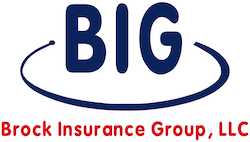Homeowner Insurance San Marcos TX
As a homeowner, it is essential to make sure that your property and possessions are properly protected from damage or loss. Homeowner insurance can provide you with the peace of mind of knowing that if the worst happens, you are covered, but what factors should be taken into consideration when making this important investment? We’ve got all the answers in our comprehensive guide to homeowner insurance – so read on for advice on how to find the right plan for your own personal haven in San Marcos TX!
What is Homeowner Insurance and How Does it Protect Your Home
Homeowner insurance, also known as home insurance or property insurance, is a type of insurance that protects your home and personal belongings. It typically includes coverage for damages caused by natural disasters, such as fire, theft, and vandalism. Homeowner insurance is essential for providing financial security and peace of mind to homeowners. It ensures that in the event of an unexpected disaster, homeowners won’t have to bear the full cost of repairing or replacing their homes and belongings.
The two types of homeowner insurance policies are standard and comprehensive. Standard policies offer basic coverage for natural disasters, while comprehensive policies offer additional coverage for hazards such as earthquakes, floods, and landslides. In addition to property damage, homeowner insurance also covers personal liability in case someone is injured while on the property.
Homeowner insurance policies may vary depending on the insurance provider you choose, but they usually cover the following aspects: dwelling coverage, personal property coverage, liability coverage, additional living expenses, and medical payments coverage. It is essential to review your policy carefully, as certain types of damages or incidents may not be covered. Homeowner insurance is a necessary investment that provides protection and peace of mind to homeowners should a disaster occur.

Different Types of Homeowner Insurance Coverage
Understanding different types of homeowner insurance coverage is essential for making an informed decision and ensuring adequate protection for their property.
There are three broad categories of homeowner insurance coverage: structural coverage, personal property coverage, and liability coverage. Structural coverage generally covers the cost of repairs or replacement of the physical structure of the insured property, such as the roof, walls, and foundation, in case of damage from covered perils like fire, vandalism, or weather events like hurricanes, tornadoes, or storms.
Personal property coverage usually covers the replacement cost of personal belongings, including furniture, appliances, clothing, and electronics if they are stolen or damaged by a covered event. Liability coverage protects homeowners against lawsuits resulting from injuries or property damage caused by themselves, family members, or pets, up to the policy limit. Other types of coverage, such as additional living expenses coverage, are also available for homeowners who need temporary housing if their home is uninhabitable due to covered damages.
Finding the right homeowner insurance coverage depends on various factors, such as the value of the property and personal belongings, the location of the property, and the homeowner’s budget. It’s essential to read the policy contract thoroughly, understand the coverage limits, deductibles, and exclusions, and compare quotes from multiple insurance providers to find the best coverage that suits their needs. Homeowner insurance not only protects one’s investment but also provides peace of mind in the face of unexpected events that can threaten the safety and security of one’s home.
The Benefits of Investing in Homeowner Insurance
Homeowner insurance is a form of property protection that offers a variety of advantages to those who choose to invest in it. One major benefit of having homeowner insurance is the protection it provides for your home against theft, vandalism, and natural disasters.
For homeowners who live in areas that are prone to natural disasters such as floods, hurricanes, and earthquakes, having homeowner insurance can provide a sense of security by providing coverage for any damage to their property or belongings. In addition, homeowner insurance can also cover the cost of temporary housing while repairs are being made, allowing individuals to continue with their daily routines without any disruption.
Another key advantage of having homeowner insurance is the financial security it provides. Without insurance, unexpected events such as a fire or burglary could result in financial ruin. With homeowner insurance, however, individuals can rest assured that they will be able to recover at least a portion of their losses if such events do occur.
Moreover, homeowner insurance can also include liability coverage, which will protect against any legal action taken against a homeowner if someone is injured on their property. With homeowner insurance, individuals can enjoy peace of mind knowing that they are protected against the unexpected and can focus on enjoying their home without having to worry about potential financial liabilities.
Investing in homeowner insurance is a wise decision for anyone who owns a home. Not only does it provide protection against costly damages, but it also offers financial security and peace of mind. With the right homeowner insurance policy in place, homeowners can live comfortably and confidently, knowing that their investment is protected and secure.

Calculating the Cost of Homeowner Insurance
Homeowner insurance is an essential aspect of homeownership as it provides protection against financial loss due to damages to the property, personal liability, and theft. Determining the cost of homeowner insurance can be daunting, but with the right information, homeowners can save significantly on their premiums.
The cost of homeowner insurance depends on several factors, including the location of the home, the age of the property, the type of coverage needed, and the value of the property. Moreover, the insurance industry considers the homeowner’s credit score, history, and insurance claims history before determining policy prices.
To calculate the cost of homeowner insurance, the homeowner needs to conduct a thorough assessment of the property. The assessment should include the value of the assets in the home, any anticipated risks such as floods, earthquakes, or natural calamities, and the homeowner’s liability risk. Once these factors are established, the homeowner can proceed with contacting insurance providers, requesting quotes, and comparing them.
Insurance providers offer different quotes for varying degrees of coverage, and homeowners should select the policy that offers comprehensive coverage at a reasonable cost and deductible. Additionally, homeowners can lower the cost of insurance by installing safety features such as fire alarms, security cameras, and smoke detectors in the home.
Calculating the cost of homeowner insurance may seem like a complicated process, but with the right information, homeowners can make informed decisions regarding their coverage and save money in the long run.
Tips for Finding Affordable Rates
With rising premiums and coverage options, homeowners often struggle to find affordable rates. Fortunately, there are some tips that can aid in finding cost-effective homeowner insurance.
Firstly, it is essential to shop around for homeowner insurance policies. Homeowners can obtain quotes from various insurance companies and compare their coverage and prices. This approach helps in identifying the best policy that provides adequate coverage at affordable rates.
Secondly, homeowners can consider higher deductibles to reduce their monthly premiums. A higher deductible indicates the amount of money that a homeowner must pay before the insurance company covers the rest of the claim. Although increasing deductibles can lower premiums, homeowners must ensure that they can afford to pay the deductible in case of a claim.
Lastly, homeowners can bundle their homeowner insurance with other policies such as auto insurance to receive discounts from the insurance company. By following these tips, homeowners can find affordable rates on their homeowner insurance, ensuring their homes and possessions are adequately protected without breaking the bank.

FAQs About Homeowner Insurance
One of the most commonly asked questions by homeowners looking for insurance is, “What does a homeowner insurance policy cover?” This type of policy usually covers the structure of the house, personal belongings, and liability protection against accidents that might occur on your property. However, there may be certain exclusions to this coverage that you need to be aware of. For example, standard homeowner insurance usually doesn’t pay for damages caused by floods or earthquakes. Thus, it’s important to read your policy and ask your insurance agent about what is and isn’t covered by your policy. Knowing what your homeowner insurance policy covers or doesn’t cover will help you make informed decisions about your policy and ensure that your home is protected against the unexpected.
In conclusion, knowing how homeowner insurance works and what type of coverage is best for your home will help you make the right decision. Homeowner insurance is not only a practical financial safeguard, but it can also provide peace of mind that your property and personal belongings are protected in the event of unexpected accidents or disasters. Educating yourself on this important coverage, researching different types of policies, evaluating quotes, and understanding the costs of homeowner insurance are all key components to making a wise home protection investment. Always remember to use caution when shopping for policies so that you can find an affordable rate without sacrificing quality coverage. Being informed makes all the difference and helps you avoid common pitfalls associated with purchasing homeowners insurance. Make sure to take these tips into consideration when looking for homeowner insurance so that you can rest assured your decisions are safe and secure. Now that you know more about homeowners insurance, why not begin exploring plans today?
